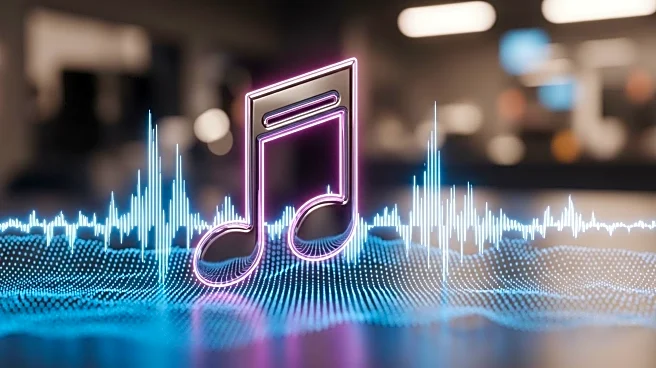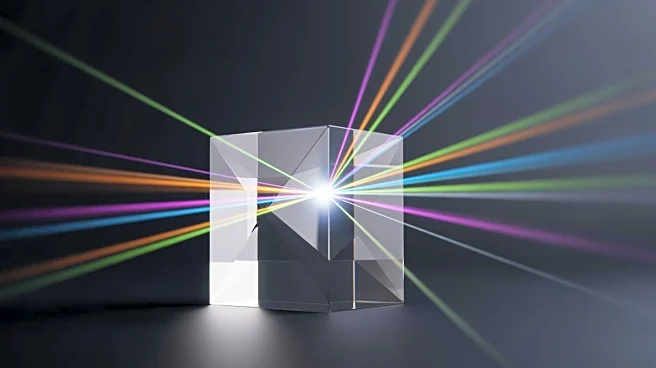What's Happening?
Oliver McCann, a British AI music creator, has signed a contract with Hallwood Media, marking the first time a music label has partnered with an AI music creator. McCann, who lacks traditional musical skills, uses AI tools to generate music across various genres. This development highlights the growing trend of AI-generated music, which is raising questions about the future of the music industry. AI tools like Suno and Udio are democratizing music creation, allowing individuals without musical backgrounds to produce songs. However, this has led to concerns about the quality of AI-generated content and its impact on the traditional music industry.
Why It's Important?
The rise of AI music creators could significantly disrupt the music industry, affecting revenue streams for record labels and the value of traditional musical creativity. As AI-generated music becomes more prevalent, it challenges the conventional methods of music production and distribution. Record labels are concerned about potential revenue loss, while artists fear the devaluation of their creative work. The legal implications are also significant, with major record companies filing lawsuits against AI music startups for copyright infringement. This shift could lead to new business models and legal frameworks within the industry.
What's Next?
The music industry is likely to see increased legal battles and negotiations regarding the use of AI in music creation. Record labels and AI startups may reach agreements on how artists are compensated when AI is used to remix their songs. As AI technology continues to evolve, the industry will need to adapt to these changes, potentially leading to new opportunities for artists and labels. The debate over AI's role in music is expected to continue, with stakeholders exploring ways to integrate AI into the mainstream music world while addressing ethical and legal concerns.
Beyond the Headlines
The integration of AI in music creation raises ethical questions about creativity and originality. As AI tools become more sophisticated, they challenge the traditional notion of artistic expression. This development could lead to a reevaluation of what constitutes creativity and originality in the music industry. Additionally, the widespread use of AI in music could influence cultural perceptions of music and art, potentially leading to new forms of artistic collaboration and innovation.











